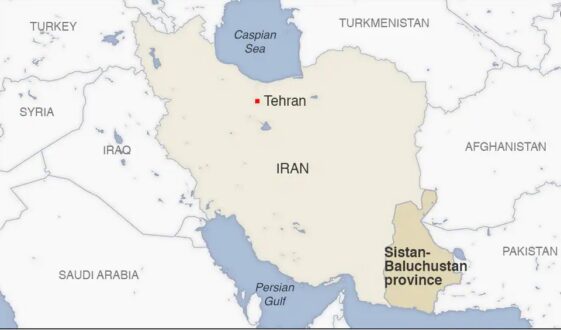Iran Human Rights – Hayatollah Eiduzehi, a Baluch man sentenced to death for drug-related charges, was executed in Kerman Central Prison.

According to Hal Vash, a Baluch man was executed in Kerman Central Prison on 25 October. His identity has been reported as 30-year-old Hayatollah Eiduzehi from Zahedan and he was sentence to death for drug-related charges.
Informed sources said: “Hayatollah was arrested for drug-related charges in Kerman five years ago but no drugs had been found. He denied the charges in court but the Revolutionary Court sentenced him to death. He had a last visit with his family the day prior.”
At the time of writing, his execution has not been reported by domestic media or officials in Iran.
Ethnic minorities, the Baluch in particular, are grossly overrepresented in execution numbers in Iran. In 2022, at least 174 Baluch minorities including 3 women, were executed in 22 prisons across Iran, making up 30% of overall executions. This is while they represent just 2-6% of Iran’s population. Furthermore, at least 274 Baluch people have been executed for drug-related charges since 2021, 40% of all drug executions in that time period.
Drug-related executions have continuously risen every year for the past three years. At least 305 people were executed for drug-related charges between 1 January-10 October 2023, a 69% increase compared to the same period in 2022, and the number of drug-related executions in 2023 were close to 20 times higher than 2020.
The number of drug executions dramatically dropped in 2018 following a 2017 Amendment to the Anti-Narcotics Laws. Consequently, drug executions ranged between 24-30 per annum between 2018-2020. The Amendment was reversed in practice in 2021 when executions increased ten-fold to 126 in 2021 and doubled again in 2022 with 256 drug-related executions. On 13 September 2023, IHRNGO reported a 94% rise in the number of drug-related executions in the year following the start of the “Woman, Life, Freedom” movement in September 2022.
 Shabtabnews In this dark night, I have lost my way – Arise from a corner, oh you the star of guidance.
Shabtabnews In this dark night, I have lost my way – Arise from a corner, oh you the star of guidance.



